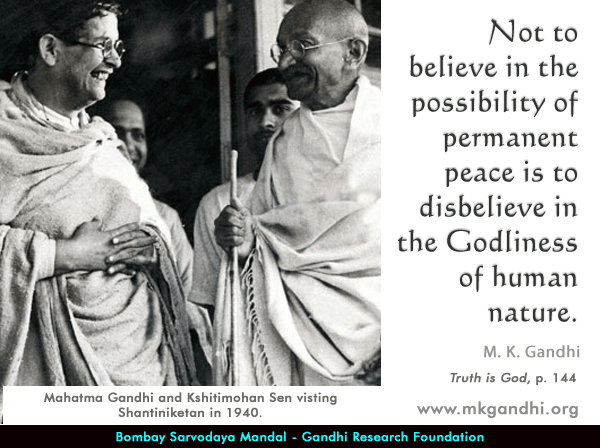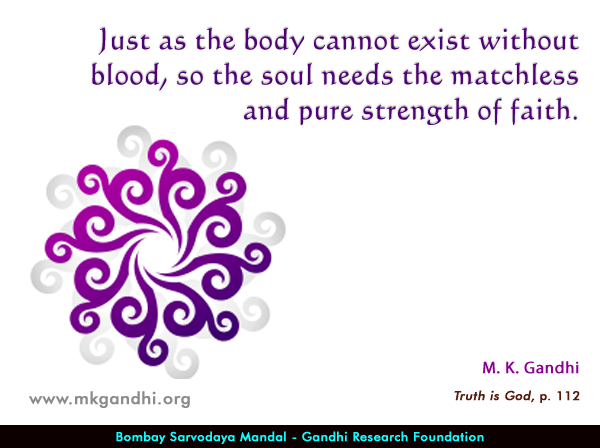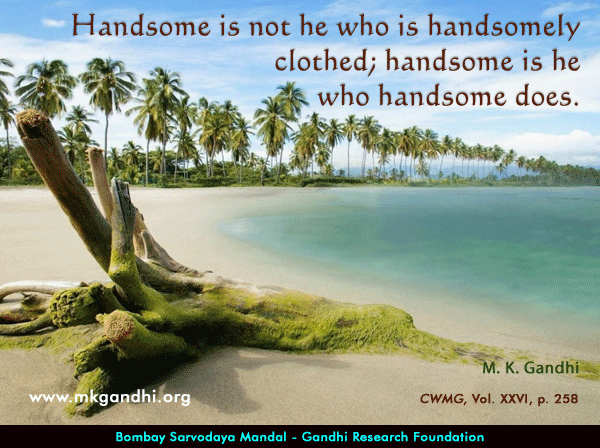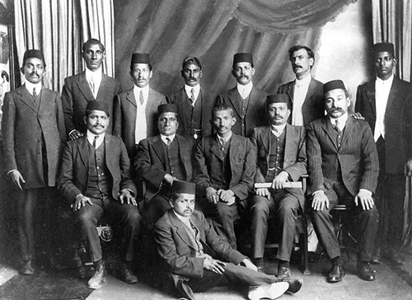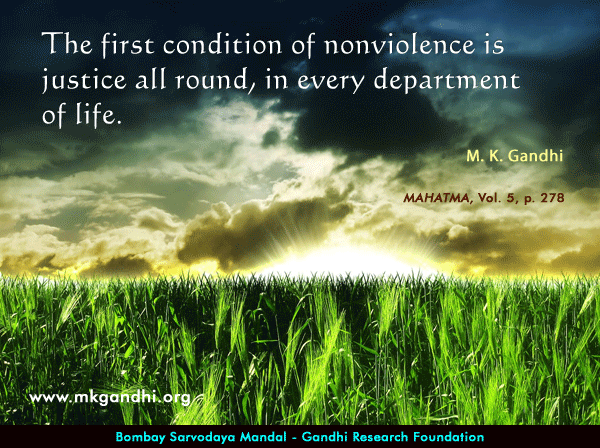Gandhi Journal Article-II ( November 2016 )
Gandhi's concept of Trusteeship
By C.S. Dharmadhikari
Today the word ‘management’ has acquired a magical implication. Presently, the wind of globalization is blowing at a high speed. Hence, new dimensions are being added to the concept of management almost on a daily basis. This is the age of experts and specialists. Consequently, in the field of management, technological innovation is giving a new momentum to an efficient and dexterous functioning. Thus, like in many other fields, different departments and sub-departments are being founded endlessly. Financial marketing, human resource management, and similar other areas are emerging as its important branches. Not only that, even the idea of micro-specialisation and super specialisation is fast emerging in the arena of management studies.
.....Gandhi rejected such a perspective on man and his nature in his scheme of things. He had greater faith in self-regulations than all the external controls put together. Besides, he was also a great votary of cultural and spiritual tradition and its major ethics. He accepted and promoted one of the major spiritual values of Indian tradition: Man is not a fallen being as he has not committed any ‘original sin.’ Rather he carries a speck of divinity in his persona. Hence certain godly tendencies are very much inherent in his personality. It is on account of self-forgetfulness that certain ungodly tendencies get attached to his thought and action. Hence, one has to get rid of the veil of avidya to know and feel his true self. Once that is achieved, he comes into his true form. It was such a perspective which made Gandhi a trusting person. He always believed in the basic goodness of man and his capacity to move towards perfection by overcoming some of his apparent weaknesses. To that end, he presented his ekadash vrata to be imbibed and followed. It was from such a perspective that he looked at the entire question of management of men and material in our times. He did not believe in reward and punishment being the basic principle behind human action, as it is based on the heart-wrenching feeling of fear and greed.
.....Gandhi rejected such a perspective on man and his nature in his scheme of things. He had greater faith in self-regulations than all the external controls put together. Besides, he was also a great votary of cultural and spiritual tradition and its major ethics. He accepted and promoted one of the major spiritual values of Indian tradition: Man is not a fallen being as he has not committed any ‘original sin.’ Rather he carries a speck of divinity in his persona. Hence certain godly tendencies are very much inherent in his personality. It is on account of self-forgetfulness that certain ungodly tendencies get attached to his thought and action. Hence, one has to get rid of the veil of avidya to know and feel his true self. Once that is achieved, he comes into his true form. It was such a perspective which made Gandhi a trusting person. He always believed in the basic goodness of man and his capacity to move towards perfection by overcoming some of his apparent weaknesses. To that end, he presented his ekadash vrata to be imbibed and followed. It was from such a perspective that he looked at the entire question of management of men and material in our times. He did not believe in reward and punishment being the basic principle behind human action, as it is based on the heart-wrenching feeling of fear and greed.
